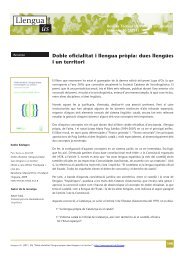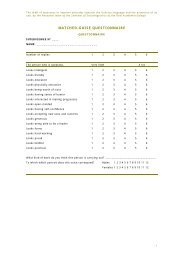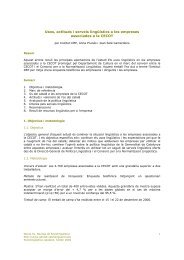Language Policy in the Russian Federation: language diversity and ...
Language Policy in the Russian Federation: language diversity and ...
Language Policy in the Russian Federation: language diversity and ...
Create successful ePaper yourself
Turn your PDF publications into a flip-book with our unique Google optimized e-Paper software.
As already stated, <strong>in</strong> only 8 of <strong>the</strong> 21 national territorial entities <strong>the</strong> titular nationality constitutes <strong>the</strong><br />
majority of <strong>the</strong> population. In addition, most of <strong>the</strong>se entities reproduce on a microscale <strong>the</strong> mosaic of<br />
nationalities, <strong>language</strong>s, cultures <strong>and</strong> religions present throughout <strong>the</strong> entire <strong>Federation</strong>. In <strong>the</strong> same<br />
way, <strong>Russian</strong> constitutes <strong>the</strong> <strong>language</strong> of communication between <strong>the</strong> center <strong>and</strong> <strong>the</strong> periphery, while<br />
<strong>the</strong> Russification process which started, with some push<strong>in</strong>g <strong>and</strong> pull<strong>in</strong>g movements accord<strong>in</strong>g to <strong>the</strong><br />
<strong>in</strong>terests <strong>and</strong> legitimization strategies of <strong>the</strong> Soviet regime, <strong>in</strong> <strong>the</strong> mid 30’s, still has its effects on<br />
m<strong>in</strong>ority <strong>language</strong>s. As we have already seen, <strong>the</strong> application of a national-territorial criteria allowed for<br />
<strong>the</strong> development of <strong>the</strong> <strong>language</strong>s of <strong>the</strong> titular nationalities by means of <strong>the</strong> creation of some regional<br />
elites, <strong>and</strong> cultural, social <strong>and</strong> economic structures that made <strong>the</strong>m turn <strong>in</strong>to almost-States, even before<br />
<strong>the</strong> disappearance of <strong>the</strong> Soviet State. But from 1992 onwards, <strong>and</strong> <strong>in</strong> contrast with what was happen<strong>in</strong>g<br />
previously, <strong>the</strong> Federal Law on <strong>the</strong> National-Cultural Autonomy also allowed <strong>the</strong> national <strong>and</strong> l<strong>in</strong>guistic<br />
communities that did not have <strong>the</strong>ir own politico-adm<strong>in</strong>istrative structures to also enjoy <strong>the</strong> right to<br />
constitute <strong>the</strong>mselves as autonomous territorial entities <strong>and</strong> to create <strong>the</strong> necessary conditions for <strong>the</strong><br />
preservation <strong>and</strong> promotion of <strong>the</strong>ir own <strong>language</strong>s.<br />
The economic situation derived from <strong>the</strong> chaotic transition from a planned economy to a free market<br />
economy also constitutes ano<strong>the</strong>r h<strong>in</strong>drance for <strong>the</strong> peripheral ethnic <strong>and</strong> l<strong>in</strong>guistic communities, given<br />
<strong>the</strong> fact that <strong>the</strong> majority of <strong>the</strong>m depend on <strong>the</strong> subsidies granted by <strong>the</strong> authorities to avoid <strong>the</strong> total<br />
collapse of <strong>the</strong>ir economic structures; this leaves little marg<strong>in</strong> for f<strong>in</strong>anc<strong>in</strong>g policies to promote<br />
autochthonous <strong>language</strong>s, if we consider <strong>the</strong> urgent priorities as regards social welfare, education, public<br />
health care <strong>and</strong> modernization of <strong>the</strong> economy.<br />
In spite of everyth<strong>in</strong>g, <strong>the</strong> ma<strong>in</strong> risk of <strong>in</strong>terethnic tensions is concerned less with <strong>the</strong> relationships that<br />
may be established from now onwards between <strong>the</strong> federal authorities <strong>and</strong> <strong>the</strong> peripheral Republics,<br />
than with <strong>the</strong> capacity of <strong>the</strong> nationalities to take <strong>in</strong>to consideration <strong>the</strong> situation, <strong>the</strong> needs <strong>and</strong> <strong>the</strong><br />
<strong>in</strong>terests of <strong>the</strong> o<strong>the</strong>r national communities present <strong>in</strong> <strong>the</strong>ir territory; to conciliate <strong>the</strong>ir desire to<br />
promote <strong>the</strong> autochthonous <strong>language</strong> with <strong>the</strong> awareness of <strong>the</strong> complexity <strong>and</strong> <strong>the</strong> slowness of <strong>the</strong><br />
processes of transition <strong>and</strong> change <strong>in</strong> deep-rooted l<strong>in</strong>guistic habits; <strong>and</strong> to establish operational<br />
structures that allow titular nationalities <strong>and</strong> m<strong>in</strong>ority groups to have access to <strong>the</strong> learn<strong>in</strong>g of <strong>the</strong><br />
autochthonous <strong>language</strong>, very often only recently turned <strong>in</strong>to <strong>the</strong> official <strong>language</strong> along with <strong>Russian</strong>. In<br />
short, it is fundamental <strong>and</strong> urgent that <strong>the</strong> nationalities can assume <strong>and</strong> successfully face this challenge<br />
<strong>in</strong> order to avoid a true disaster <strong>and</strong> an <strong>in</strong>tensification of <strong>in</strong>terethnic tensions:<br />
It is obvious that <strong>the</strong> <strong>language</strong>s of all <strong>the</strong> peoples <strong>in</strong> Russia <strong>in</strong>clud<strong>in</strong>g <strong>Russian</strong> are <strong>in</strong> a state<br />
of crisis. Many of <strong>the</strong>m are on <strong>the</strong> verge of ext<strong>in</strong>ction. It is without a doubt, a<br />
humanitarian catastrophe although <strong>the</strong> socio-economic calamities of <strong>the</strong> last years have<br />
hidden it. The fact that <strong>the</strong> <strong>language</strong>s of <strong>in</strong>digenous peoples <strong>in</strong> <strong>the</strong> republics are decreed<br />
as state <strong>language</strong>s makes no difference. The crisis has gone so far that <strong>in</strong> many cases it<br />
seems irreversible 13 .<br />
4. Conclusion: strategies for a peaceful <strong>and</strong> balanced management of l<strong>in</strong>guistic<br />
<strong>diversity</strong> <strong>in</strong> <strong>the</strong> <strong>Russian</strong> <strong>Federation</strong> <strong>and</strong> <strong>the</strong> Soviet successor states<br />
The events tak<strong>in</strong>g place s<strong>in</strong>ce 1991 <strong>in</strong> <strong>the</strong> <strong>Russian</strong> <strong>Federation</strong> <strong>and</strong> <strong>the</strong> Soviet successor states prove <strong>the</strong><br />
absolute necessity of solv<strong>in</strong>g <strong>and</strong> prevent<strong>in</strong>g <strong>in</strong>terethnic conflicts <strong>in</strong> order to guarantee a m<strong>in</strong>imum level<br />
of well-be<strong>in</strong>g <strong>in</strong> <strong>the</strong> local populations <strong>and</strong> to satisfy <strong>the</strong>ir aspirations. In addition, it is also urgent to<br />
guarantee a correct management of <strong>the</strong> ethnic, l<strong>in</strong>guistic, religious <strong>and</strong> cultural <strong>diversity</strong> so as to prevent<br />
violent v<strong>in</strong>dications from spread<strong>in</strong>g <strong>and</strong> <strong>in</strong>terethnic conflicts both <strong>in</strong> <strong>the</strong> core <strong>and</strong> <strong>the</strong> periphery of <strong>the</strong><br />
<strong>Russian</strong> <strong>Federation</strong> from multiply<strong>in</strong>g 14 .<br />
Some positive developments have to be stressed, as for example <strong>the</strong> signature by Russia on May 10th,<br />
of <strong>the</strong> Council of Europe's European Charter for Regional <strong>and</strong> M<strong>in</strong>ority <strong>Language</strong>s, which is an important<br />
step <strong>in</strong>volv<strong>in</strong>g a change of attitude toward <strong>the</strong> protection of <strong>the</strong> more than one hundred m<strong>in</strong>ority<br />
<strong>language</strong>s spoken <strong>in</strong> Russia. The great <strong>Russian</strong> l<strong>in</strong>guistic <strong>diversity</strong> have been object of different sem<strong>in</strong>ars<br />
<strong>and</strong> meet<strong>in</strong>gs organized by <strong>the</strong> Council of Europe, aimed to grow <strong>the</strong> <strong>Russian</strong> Government’s awareness<br />
about <strong>the</strong> importance of <strong>the</strong> protection of <strong>the</strong> European cultural heritage.<br />
It is also worthnot<strong>in</strong>g that on July 19, Moldova adopted a Law on Ethnic M<strong>in</strong>orities, as far as <strong>the</strong><br />
multiethnical <strong>and</strong> multil<strong>in</strong>gual situation <strong>in</strong> this country is a quite complex one s<strong>in</strong>ce <strong>the</strong>re exist six<br />
officially recognized m<strong>in</strong>ority groups (<strong>Russian</strong>, Ukra<strong>in</strong>ian, Gagauz, Jews, Bulgarian <strong>and</strong> Rom) which<br />
nearly make up half of <strong>the</strong> state’s total population. The l<strong>in</strong>guistic issue is nei<strong>the</strong>r an easy one: <strong>Russian</strong><br />
was <strong>the</strong> official <strong>language</strong> for 45 years until, <strong>in</strong> 1989, Romanian (Moldovan) was aga<strong>in</strong> recognized as <strong>the</strong><br />
state’s official <strong>language</strong> follow<strong>in</strong>g <strong>the</strong> approval of a “law on l<strong>in</strong>guistic transition” (Law on <strong>the</strong> Function<strong>in</strong>g<br />
13 Bgazhnokov, 2000.<br />
14 Vitaly Ganiush<strong>in</strong>, a well-known <strong>Russian</strong> journalist, already warned that: “We have been able to survive <strong>the</strong><br />
disappearance of <strong>the</strong> USSR, but we could not survive <strong>the</strong> dis<strong>in</strong>tegration of Russia” (New Times, 1993, n. 30).<br />
Noves SL. Revista de Sociol<strong>in</strong>güística 7<br />
http://www.gencat.cat/llengua/noves<br />
Sociol<strong>in</strong>güística <strong>in</strong>ternacional. Primavera 2002


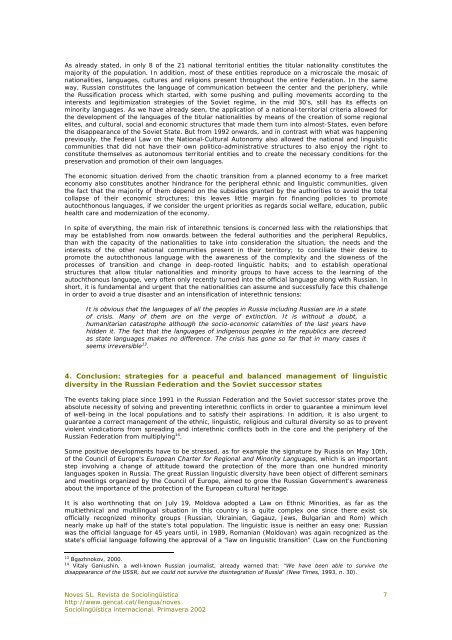
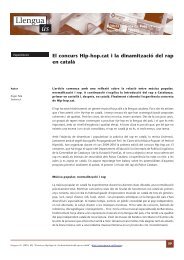
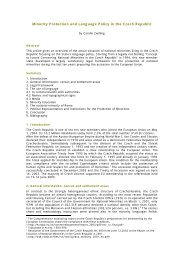

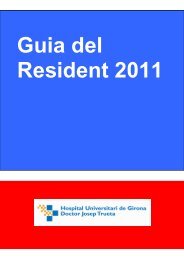

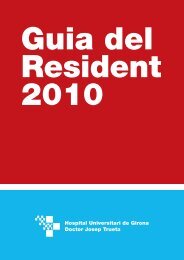
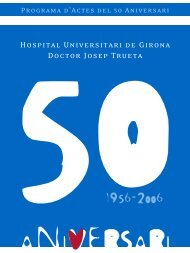
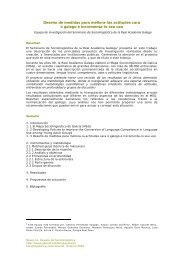
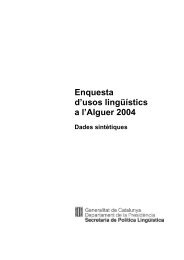
![Mestres, J.M. [et. al]. Manual d'estil: la redacció i l'edició de textos](https://img.yumpu.com/31252673/1/184x260/mestres-jm-et-al-manual-destil-la-redaccia-i-ledicia-de-textos.jpg?quality=85)
